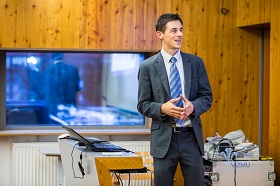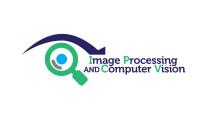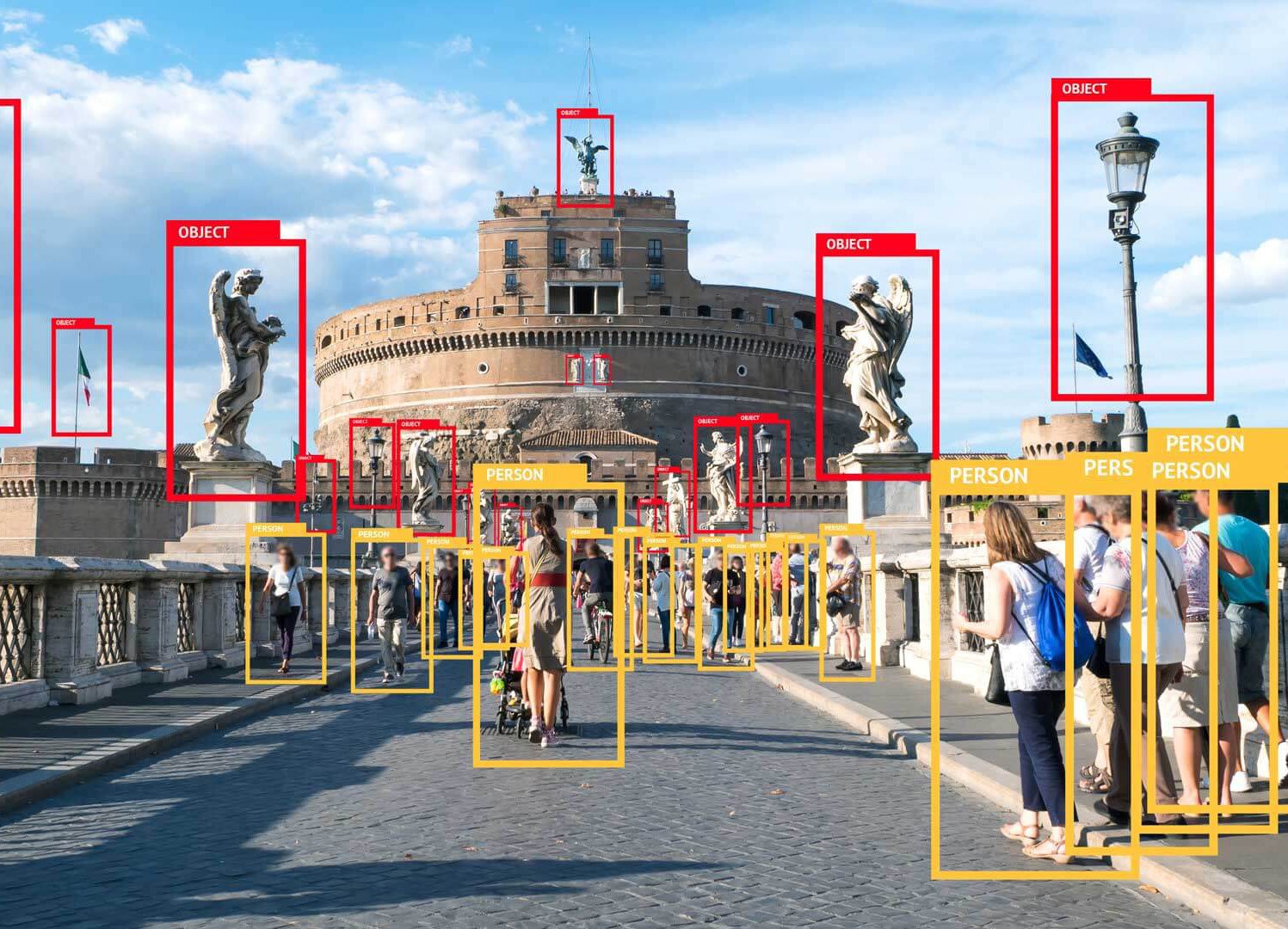The IPCV Master's program is a four-semester MSc in the state-of-the-art fields of image processing and computer vision, says Kristóf Karacs, Vice Dean for General and International Affairs, Head of the program.
Application is now open at ipcv.eu!Application deadline: 1 March 2021
"Similarly to human vision, new technologies enable us to understand – at least in part – the visual world with the help of machines. This means that the machine reacts in an intelligent way to an image, e.g. it determines if somebody is visible in it, and who it is. In medical imaging, it is capable of specifying whether a given cell type is pathological. Or, for instance, it can count the number of particles in the blood flow."
 As Professor Karacs explains it, image processing has been used for such tasks for nearly for 50 years, but in the beginning, the capacities were very simple and limited. The teaching of artificial neural networks took a big leap around 2010.
As Professor Karacs explains it, image processing has been used for such tasks for nearly for 50 years, but in the beginning, the capacities were very simple and limited. The teaching of artificial neural networks took a big leap around 2010.
Today we can think of several application fields. Autonomous navigation is becoming ever more widespread in road- and air traffic. "These are extremely exciting and noble tasks, and at the same time, very important, too. However, a high-level of mathematical competence is required to solve them", affirms Kristóf Karacs. Artificial neural networks are trained by machine learning to carry out the tasks. For this reason, students of the IPCV program study machine learning, data analysis and data mining, among other subjects.
 The 4-semester MSc program is run in the co-operation of three universities: Pázmány Péter Catholic University, the Autonomous University of Madrid and the University of Bordeaux.
The 4-semester MSc program is run in the co-operation of three universities: Pázmány Péter Catholic University, the Autonomous University of Madrid and the University of Bordeaux.
Students are currently eligible for an Erasmus Mundus grant, but other scholarships will be available for the students of Pázmány even after the termination of the above grant.
IPCV students spend their first semester at Pázmány, and the second and third semesters in Madrid and Bordeaux, respectively. In the fourth semester, students do their internship and write their Master's thesis at one of the partner universities or at an external institution, whether a research lab or an enterprise.
Based on the above, we can conclude that there is a great interest for the study program. As Kristóf Karacs explains it, there are 20 times more applicants for the program than the number of available places. Therefore, "basically only students of outstanding academic performance can get into the program".

In addition to computer science engineering students, we experience great interest in this MSc program principally from students of mechanical and other engineering backgrounds, who are familiar with computer sciences.
"They wish to learn not only how to apply, but also how to perform computer vision."
The maximum number of students per cohort is 28. "We decided that students of a cohort travel from university to university together, because it facilitates interactions between them while they can efficiently support one another."
Internships focus primarily on teamwork: practicing routine engineering tasks that occur in everyday work. Students, the majority of whom intend to obtain a PhD degree, write their thesis in explicit research topics, adds Karacs. Those who are oriented towards the industry may also need this, as due to the complex background knowledge acquired, they may produce research results in the private sector as well.
Kristóf Karacs points out another important aspect. "Just like children in school, algorithms need 'guidance' in their learning processes, which requires in-depth skills. At a Catholic university, studying this field is especially important because it is expected that in the near future, related- ethical - issues will arise beyond the scope of engineering, which should by no means be ignored. For example: in what direction should we 'guide' the algorithms, and what moral considerations do we face when algorithms start to be 'guided' by one another?"
There is a strong demand for graduates both in Hungary and all over the world, whether in the industrial or medical line, or in the field of autonomous navigation and web application.

"There are plenty of application possibilities within the field of healthcare as well.
Due to the study programs focusing on bionics at our Faculty, there is a lot of research related to image processing, from medical instrument development to all areas where diagnostic imaging is used."
As the Head of the program summarizes it: "We aim for a high level of understanding of the basics of engineering skills, but we do consider it non-negligible that our graduates develop an attitude ensuing from the values of our university. Based on this attitude, they will be able to answer the arising professional and related moral questions of this rapidly evolving field throughout the decades of their professional career."
Application is now open at ipcv.eu!
Updated: 25-02-2021


